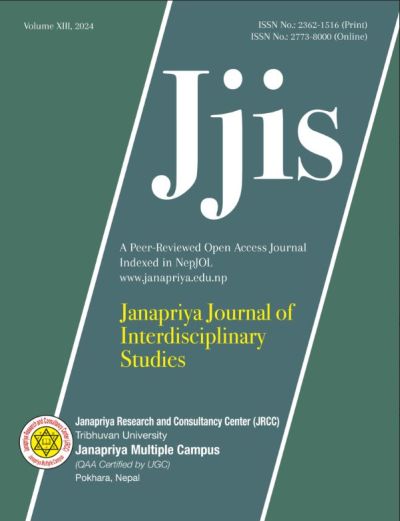An Observational Study on Peer Feedback Practices in University Level English Language Classrooms in Nepal
DOI:
https://doi.org/10.3126/jjis.v13i1.75522Keywords:
English language learning, peer feedback practices, peer feedback challenges, peer feedback opportunitiesAbstract
The Faculty of Education (FoE) at Tribhuvan University (TU) in Kathmandu, Nepal, has introduced peer feedback as a language teaching technique, however, the classroom practice of this technique has not yet been assessed. Therefore, I conducted this descriptive study to explore peer feedback practices in university-level English language classrooms. Four students from the Master in Education, Fourth Semester English specialization group at Prithvi Narayan Campus, Pokhara, under the FoE, TU, were purposively selected as participants. This study employed an open-ended questionnaire and classroom observation as tools for data collection. I coded and categorized the qualitative data and analyzed the data across four themes. The results revealed that peer feedback practices in the classroom offer both opportunities and challenges for students. On the one hand, peer feedback practices allow students to improve their English language skills, foster a collaborative and interactive culture, and develop the classroom as a learning community. It also helps to build confi dence among students. On the other hand, students misinterpret Feedback, if teachers do not provide adequate guidance. Therefore, the study emphasizes the need for integrating more peer feedback sessions with explicit instructions into the syllabus to ensure effective implementation and enhance English language learning for students.
Downloads
Downloads
Published
How to Cite
Issue
Section
License
Copyright (c) 2024 The Author(s)

This work is licensed under a Creative Commons Attribution-NonCommercial 4.0 International License.




